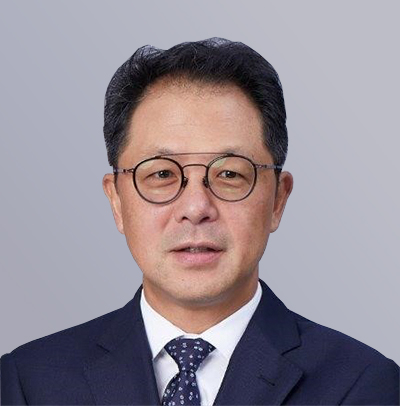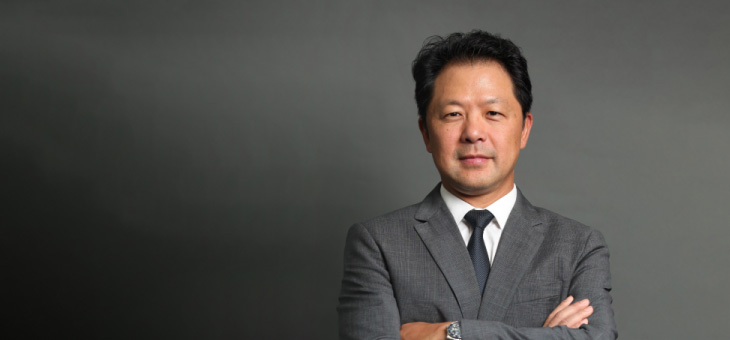- $1,164.5 Million
£922.8 Million - $7.62
£6.04 - $5.83
£4.62 - LSE:VOF
VOF invests growth equity in privately negotiated opportunities across listed, private equity and SOE assets. We are long-term, active investors who take significant minority stakes in leading private companies in Vietnam.
VOF makes concentrated, high-conviction investments supported by due diligence rights, performance commitments and downside protections, wherever possible. VOF applies private-equity terms on investments, in order to seek market premiums on exit, and ensuring liquidity by negotiating various exit options such as a commitment to IPO, drag and tag along rights, and put-call options with the seller/sponsor.
VOF makes investments into scalable, sustainably built companies that have strong brand names, excellent distribution networks, and experienced management teams. VOF looks to invest in industries that benefit Vietnam’s long-term structural growth, targeting companies operating in the financials, real estate, materials, and supply chain sectors, as well as those that benefit from strong domestic consumption.
ESG
The Board takes a close interest in ESG issues and sets the overall strategy. As management of the portfolio is delegated to the Investment Manager, the practical implementation of ESG policy rests with the Investment Manager.

Responsible investing has been and continues to be a core tenet of our investment philosophy and process. VinaCapital, as a firm, has long recognised that ESG issues can have a significant impact on value creation across the investment cycle. We have adopted a Responsible Investment policy to formalize our approach to incorporating environmental, social, and corporate governance considerations across our investment activities.
In developing this policy, we have considered a range of codes and standards, including the United Nations-supported Principles for Responsible Investment, the International Finance Corporation’s (“IFC’s”) Performance Standards on Environmental and Social Sustainability, and our internal policies.
In August 2017, the Company declared its first dividend.
Dividend Distribution
The Board has stated that the Company intends to pay a dividend representing approximately 1% of NAV twice each year, normally declared in March and October.
Click the below button to view historical dividend distribution information.
Share Buybacks
The Company may also distribute capital by means of share buybacks when the Board believes that it is in the best interests of shareholders to do so. The share buyback programme will be subject to Shareholder approval at each annual general meeting.

Huw Evans
NON-EXECUTIVE CHAIRMAN (INDEPENDENT)

Kathryn Matthews
NON-EXECUTIVE DIRECTOR (INDEPENDENT)

Julian Healy
NON-EXECUTIVE DIRECTOR (INDEPENDENT)

Peter Hames
NON-EXECUTIVE DIRECTOR (INDEPENDENT)

Hai Thanh Trinh
NON-EXECUTIVE DIRECTOR (INDEPENDENT)
To comply with the UK Listing Regime, the Company must comply with the requirements of the UK Corporate Governance Code issued in July 2018 (the “UK Code”). The Company is also required to comply with the Guernsey Code of Corporate Governance (the “Guernsey Code”).
The Company is a member of the Association of Investment Companies (the “AIC”) and by complying with the AIC Code of Corporate Governance which was issued in February 2019 (the “AIC Code”) is deemed to comply with both the UK Code and the Guernsey Code.
The Board has considered the Principles and Provisions of the AIC Code. The AIC Code addresses the Principles and Provisions set out in the UK Code, as well as setting out additional Provisions on issues that are of specific relevance to the Company as an investment company.
The Board considers that reporting against the Principles and Provisions of the AIC Code, which has been endorsed by the Financial Reporting Council and the Guernsey Financial Services Commission provides relevant information to shareholders.
The AIC Code is available on the AIC website (www.theaic.co.uk). It includes an explanation of how the AIC Code adapts the Principles and Provisions set out in the UK Code to make them relevant for investment companies.
There are four Board committees in operation: the Audit Committee, Management Engagement Committee, Remuneration Committee and Nomination Committee. A summary of the duties of each of the Committees is set out here
The Audit and Valuation Committee, which meets at least twice a year, comprises all independent Directors and is chaired by Mr Healy. The Committee’s Chairman presents the Committee’s findings to the Board at each Board meeting.
The Committee is responsible for monitoring the process of production and ensuring the integrity of the Company’s accounts. The primary responsibilities of the Committee are: to oversee the relationship with the Auditor and make recommendations to the Board in relation to their re-appointment and to approve their remuneration and terms of engagement; to assess the Auditor’s independence and objectivity and the effectiveness of the audit process; to review the effectiveness of the Company’s internal control environment; to identify, assess, monitor and mitigate the risks associated with the Company’s business; to monitor adherence to best practice in corporate governance; and to review the Company’s whistleblowing arrangements and its procedures for detecting fraud and preventing bribery and corruption.
In discharging its responsibility to oversee the Auditor’s independence, the Audit and Valuation Committee considers whether any other engagements provided to the auditor will have an effect on, or perception of, compromising the Auditor’s independence and objectivity. The performance of services outside of external audit must be specific and approved by the Audit and Valuation Committee Chairman.
In relation to its remit over the valuation of investments, the Committee’s primary goal is to ensure that the Company’s investments are recorded at fair value. In doing so, the Committee reviews the reports of independent valuation specialists as well as reviewing the Investment Manager’s valuation process. Each individual valuation is reviewed in detail and the recommendations of the independent valuers may be accepted or modified. The Committee approves the fair value of investments used to prepare the financial statements.
The Management Engagement Committee comprises all independent Directors and is chaired by Ms Matthews. The Committee’s responsibilities include: reviewing the performance of the Investment Manager under the Investment Management Agreement and to consider any variation to the terms of the agreement. The Management Engagement Committee also reviews the performance of the nominated adviser, Company Secretary, corporate brokers, custodian, administrator and registrar and any matters concerning their respective agreements with the Company.
The Management Engagement Committee, the Remuneration Committee and the Nomination Committee each meet at least once a year.
The Remuneration Committee comprises all independent Directors and is chaired by Mr. Hames. The Committee’s responsibilities include: setting the policy for the remuneration of the Company’s Chairman and of the non-Executive Directors, including any additional fees for chairmanship of committees of the Board, and reviewing the ongoing appropriateness and relevance of the remuneration policy; determining the individual remuneration policy of each non-executive Director; agreeing the policy for authorising Directors’ expenses claims; and the selection and appointment of any remuneration consultants who advise the Committee.
The Management Engagement Committee, the Remuneration Committee and the Nomination Committee each meet at least once a year.
The Nomination Committee comprises all independent Directors and is chaired by Mr Evans. The Committee’s responsibilities include: reviewing the structure, size and composition of the Board and making recommendations to the Board in respect of any changes; succession planning for the Chairman and the Directors; making recommendations to the Board concerning the membership and chairmanship of the Board committees; identifying and nominating for the approval of the Board candidates to fill Board vacancies; and, before any new appointment is recommended; evaluating the balance of skills, knowledge, experience and diversity within the Board and preparing an appropriate role description.
The Management Engagement Committee, the Remuneration Committee and the Nomination Committee each meet at least once a year.

Andy Ho
MANAGING DIRECTOR
CHIEF INVESTMENT OFFICER

Dieu Phuong Nguyen
DEPUTY MANAGING DIRECTOR
HEAD OF PRIVATE EQUITY

Khanh Vu
DEPUTY MANAGING DIRECTOR, HEAD OF LISTED EQUITIES

Jess Rueløkke
DEPUTY MANAGING DIRECTOR
HEAD OF BUSINESS ENHANCEMENT
